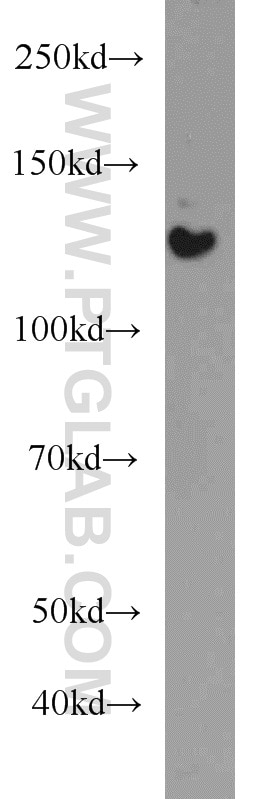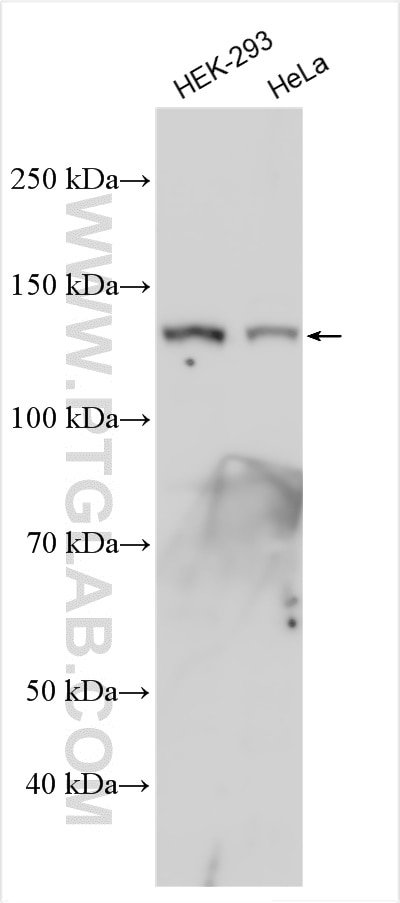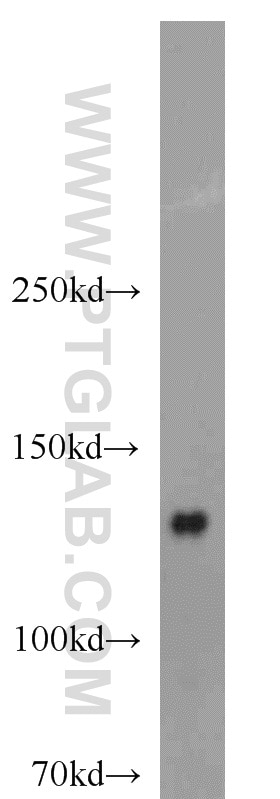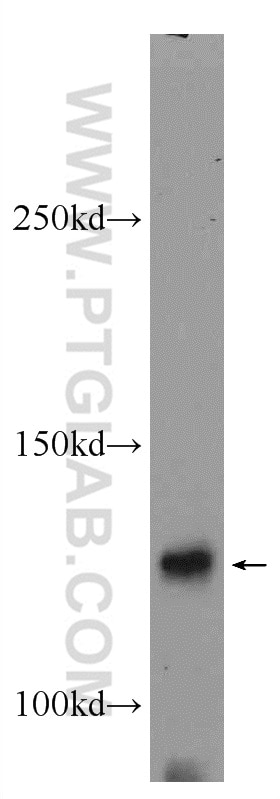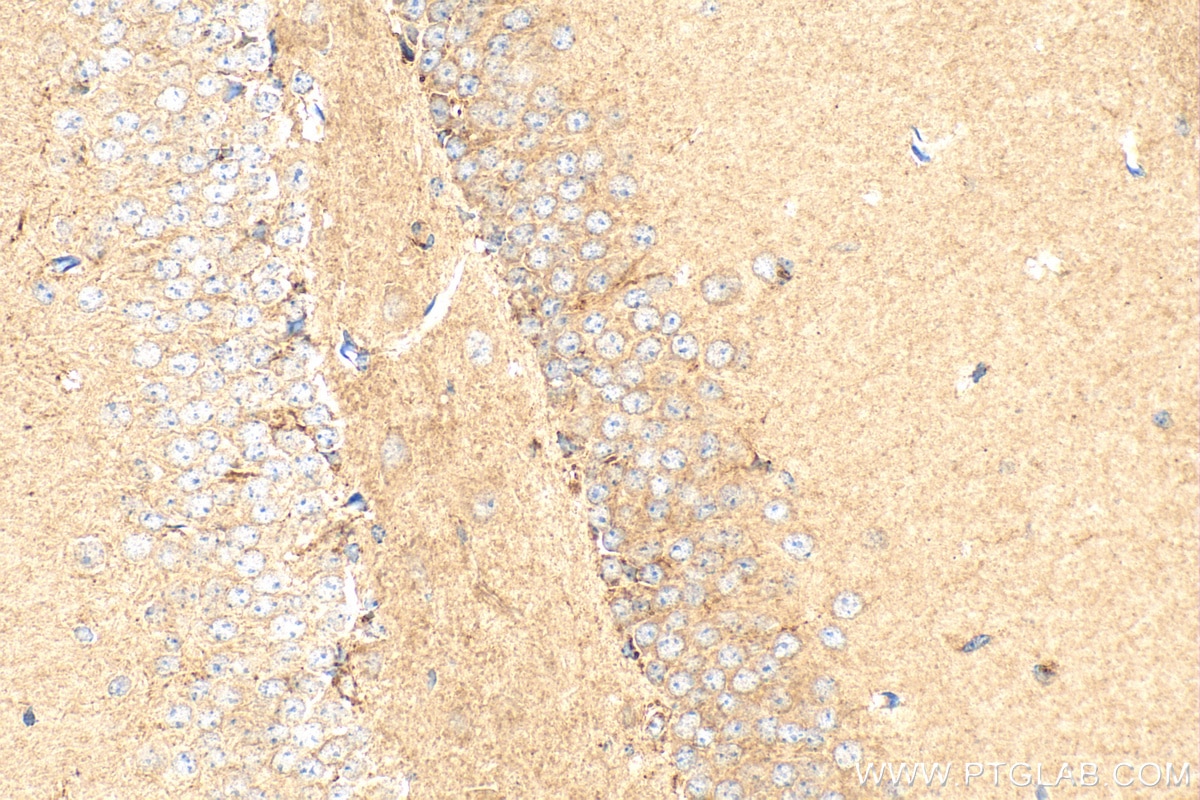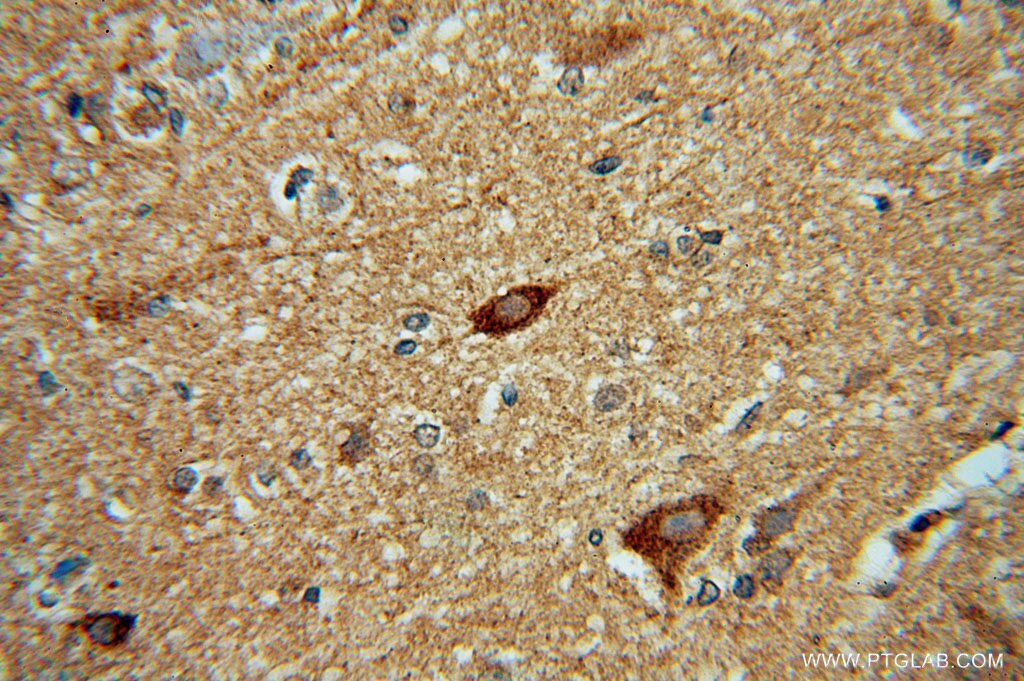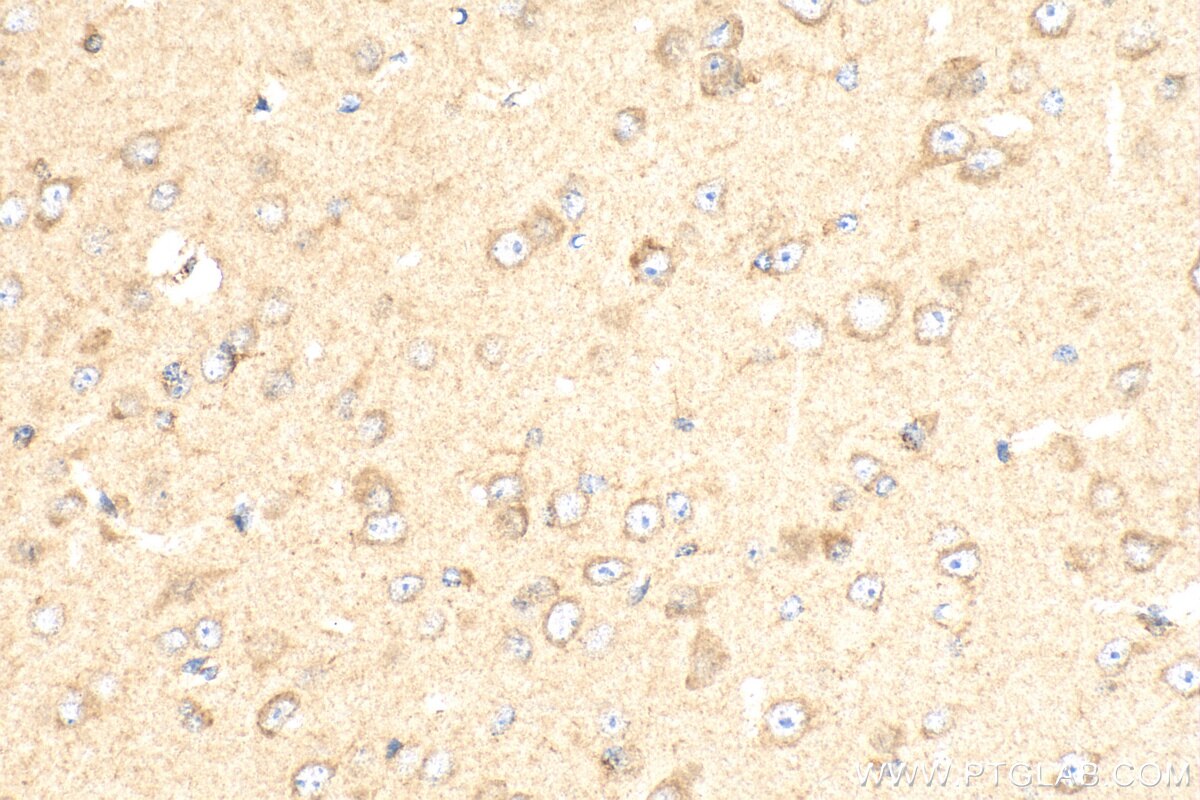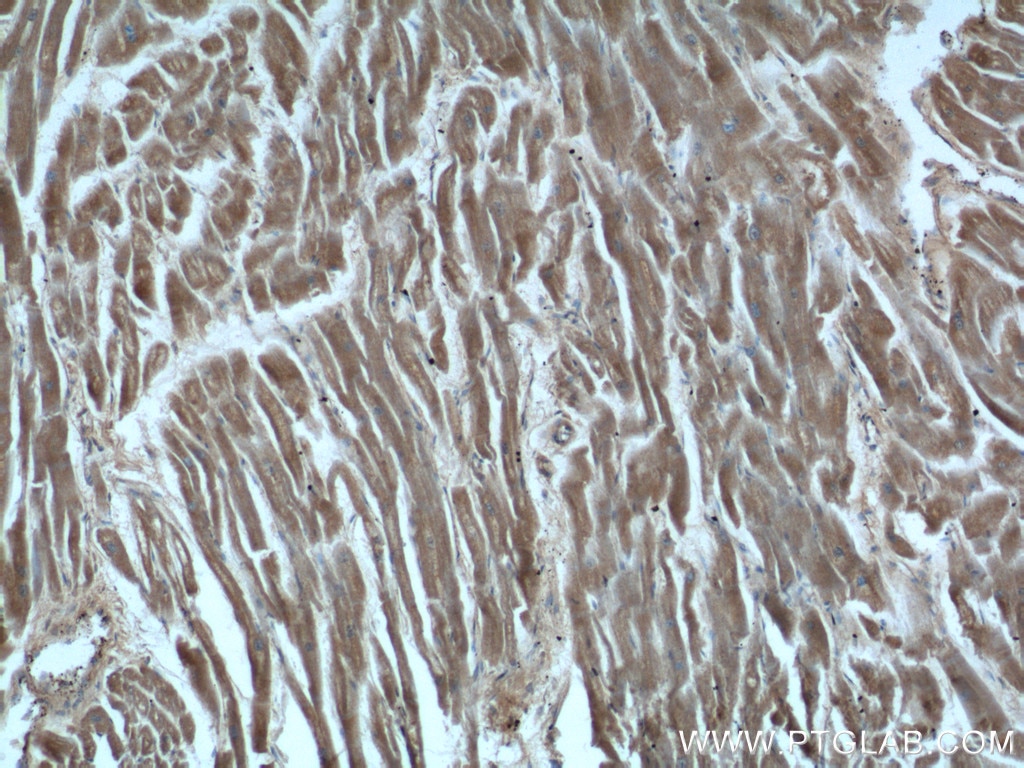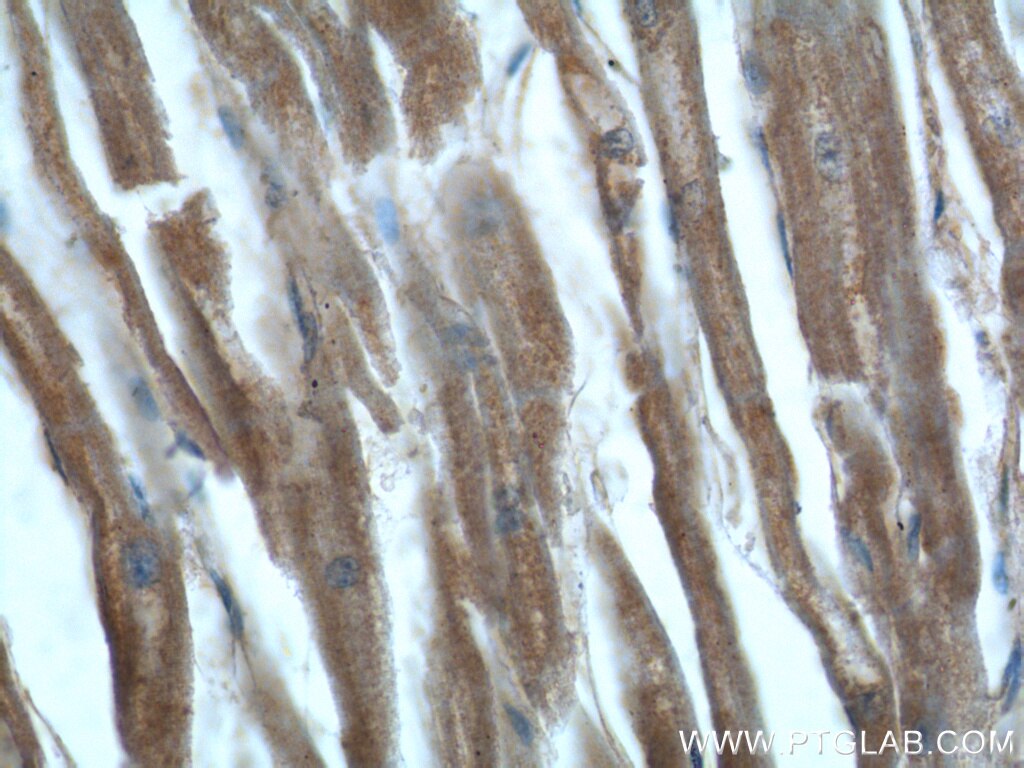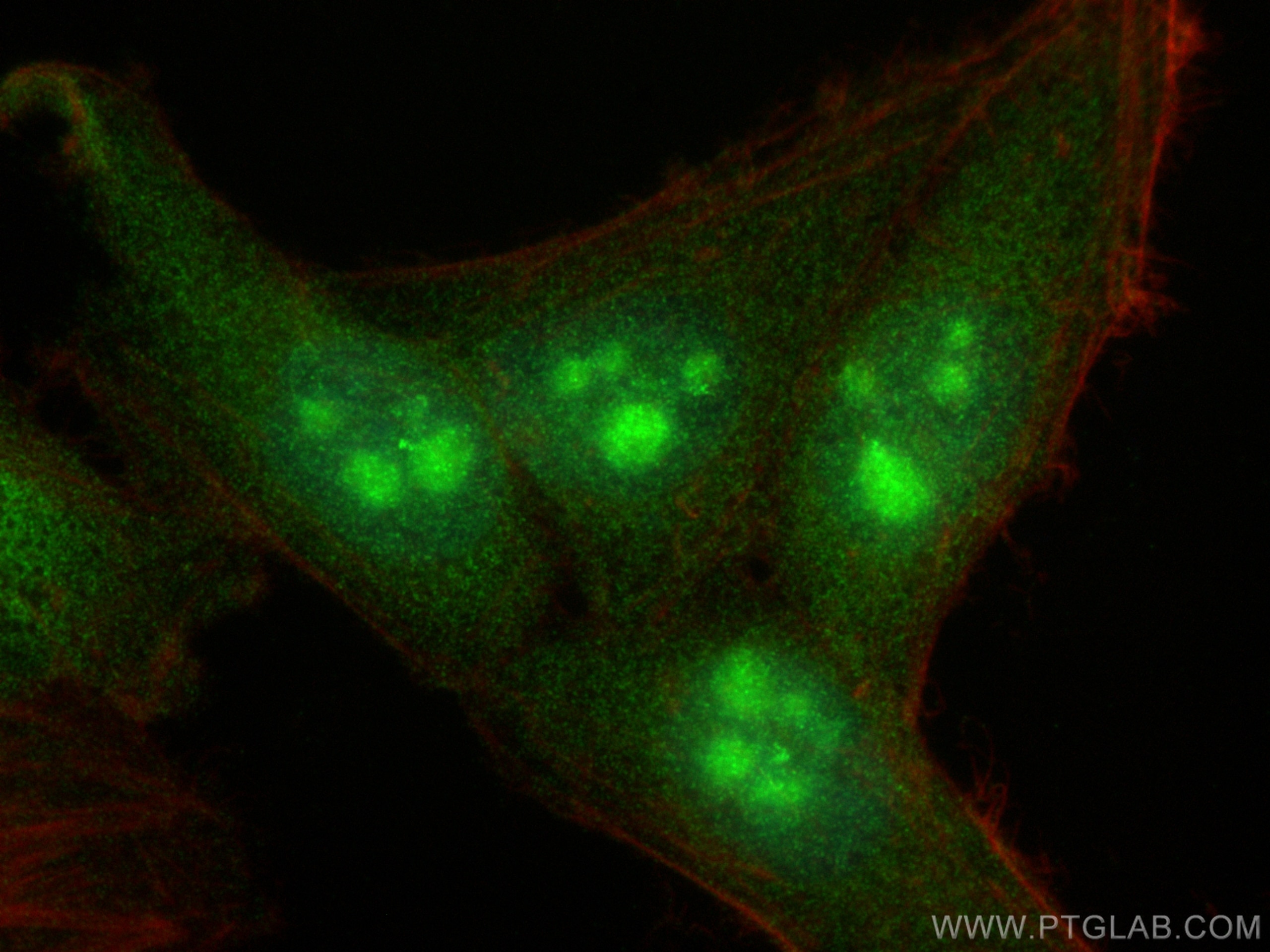Tested Applications
| Positive WB detected in | HeLa cells, HEK-293 cells, fetal human brain tissue |
| Positive IHC detected in | mouse brain tissue, human brain tissue, human heart tissue Note: suggested antigen retrieval with TE buffer pH 9.0; (*) Alternatively, antigen retrieval may be performed with citrate buffer pH 6.0 |
| Positive IF/ICC detected in | HepG2 cells |
Recommended dilution
| Application | Dilution |
|---|---|
| Western Blot (WB) | WB : 1:100-1:1000 |
| Immunohistochemistry (IHC) | IHC : 1:50-1:500 |
| Immunofluorescence (IF)/ICC | IF/ICC : 1:50-1:500 |
| It is recommended that this reagent should be titrated in each testing system to obtain optimal results. | |
| Sample-dependent, Check data in validation data gallery. | |
Published Applications
| KD/KO | See 5 publications below |
| WB | See 27 publications below |
| IHC | See 4 publications below |
| IF | See 4 publications below |
| CoIP | See 3 publications below |
| ChIP | See 1 publications below |
Product Information
16166-1-AP targets HDAC5-specific in WB, IHC, IF/ICC, CoIP, ChIP, ELISA applications and shows reactivity with human, mouse samples.
| Tested Reactivity | human, mouse |
| Cited Reactivity | human, mouse, rat |
| Host / Isotype | Rabbit / IgG |
| Class | Polyclonal |
| Type | Antibody |
| Immunogen |
Peptide Predict reactive species |
| Full Name | histone deacetylase 5 |
| Calculated Molecular Weight | 122 kDa |
| Observed Molecular Weight | 120-140 kDa |
| GenBank Accession Number | BC051824 |
| Gene Symbol | HDAC5 |
| Gene ID (NCBI) | 10014 |
| RRID | AB_2116779 |
| Conjugate | Unconjugated |
| Form | Liquid |
| Purification Method | Antigen affinity purification |
| UNIPROT ID | Q9UQL6 |
| Storage Buffer | PBS with 0.02% sodium azide and 50% glycerol, pH 7.3. |
| Storage Conditions | Store at -20°C. Stable for one year after shipment. Aliquoting is unnecessary for -20oC storage. 20ul sizes contain 0.1% BSA. |
Background Information
Histone acetylation and deacetylation alternately expose and occlude DNA to transcription factors. At least 4 classes of HDAC were identified. HDAC5 is a class II HDAC. HDAC5 is responsible for the deacetylation of lysine residues on the N-terminal part of the core histones (H2A, H2B, H3, and H4). Histone deacetylation gives a tag for epigenetic repression and plays an important role in transcriptional regulation, cell cycle progression, and developmental events. Histone deacetylases act via the formation of large multiprotein complexes. HDAC5 is involved in muscle maturation by repressing transcription of myocyte enhancer MEF2C. During muscle differentiation, HDAC5 shuttles into the cytoplasm, allowing the expression of myocyte enhancer factors. This antibody only binds HDAC5. It does not cross-react with other HDACs.
Protocols
| Product Specific Protocols | |
|---|---|
| IF protocol for HDAC5-specific antibody 16166-1-AP | Download protocol |
| IHC protocol for HDAC5-specific antibody 16166-1-AP | Download protocol |
| WB protocol for HDAC5-specific antibody 16166-1-AP | Download protocol |
| Standard Protocols | |
|---|---|
| Click here to view our Standard Protocols |
Publications
| Species | Application | Title |
|---|---|---|
Cell Targeting Epigenetic Crosstalk as a Therapeutic Strategy for EZH2-Aberrant Solid Tumors. | ||
Sci Transl Med ATP citrate lyase drives vascular remodeling in systemic and pulmonary vascular diseases through metabolic and epigenetic changes | ||
Biomaterials Myocardial delivery of miR30d with peptide-functionalized milk-derived extracellular vesicles for targeted treatment of hypertrophic heart failure | ||
Kidney Int Histone deacetylase 4 selectively contributes to podocyte injury in diabetic nephropathy. | ||
Cancer Lett ITGA2 overexpression inhibits DNA repair and confers sensitivity to radiotherapies in pancreatic cancer | ||
J Cell Mol Med Low levels of AMPK promote epithelial-mesenchymal transition in lung cancer primarily through HDAC4- and HDAC5-mediated metabolic reprogramming.
|

